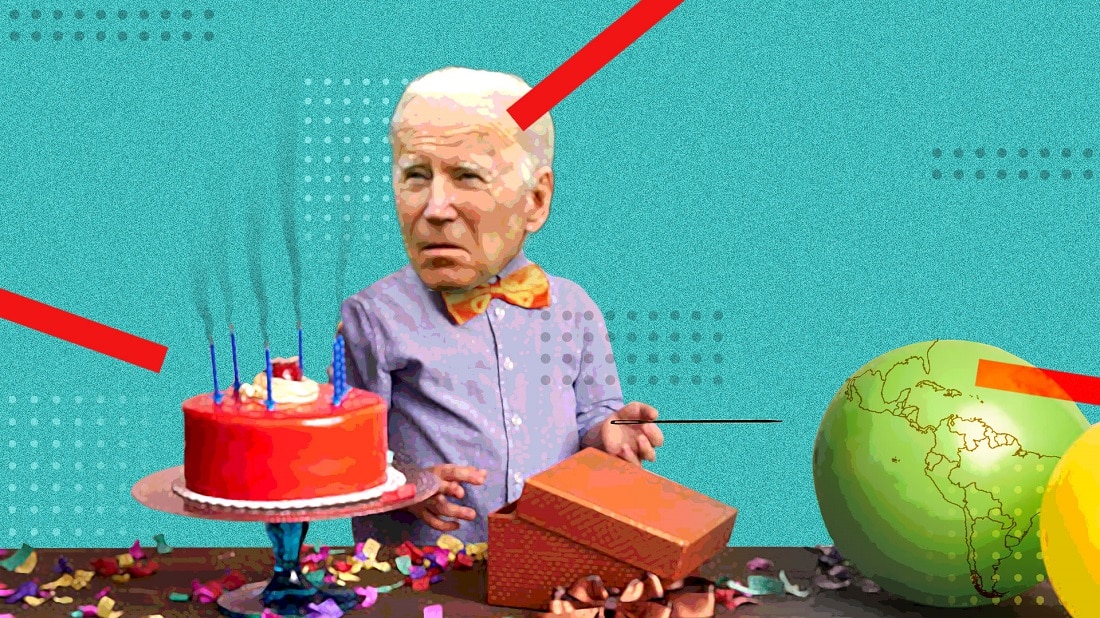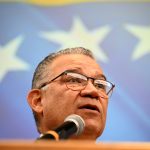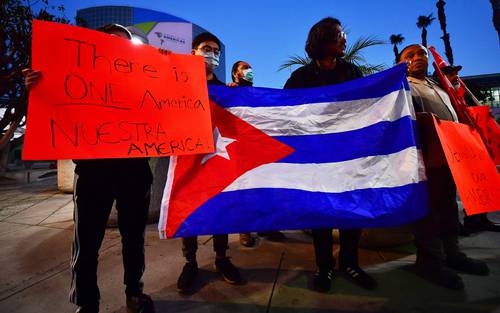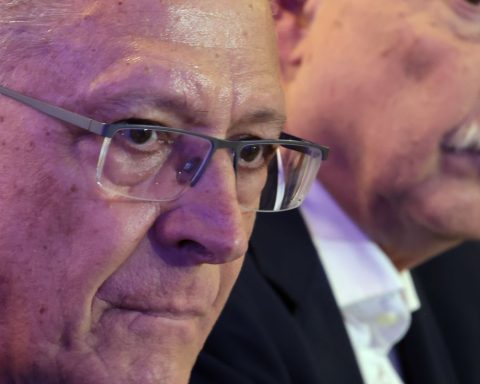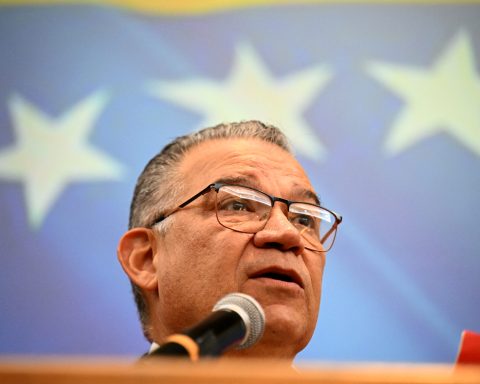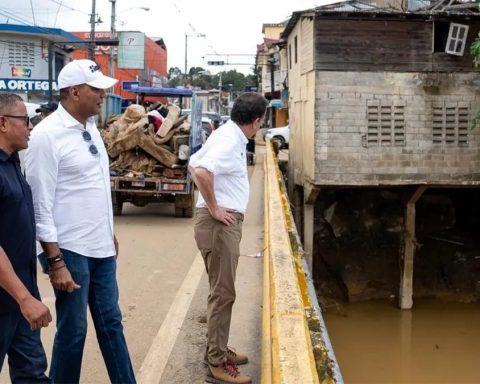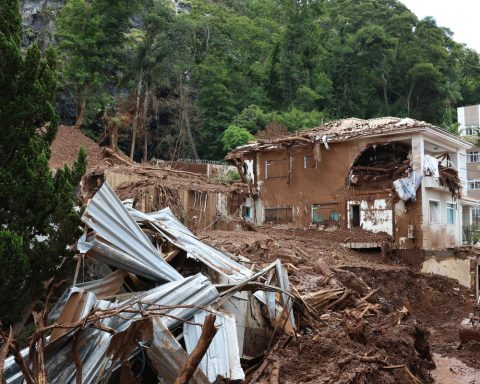This is “a key moment in our hemisphere, a moment in which we are facing many challenges to democracy” in Latin America. With this sentence, in an interview with NTN24, the Assistant Secretary for Western Hemisphere Affairs of the United States, Brian A. Nichols, provoked a strong reaction on May 2 in some leaders of the continent. He was referring to the fact that countries such as Cuba, Nicaragua and “the Maduro regime” do not respect “the Democratic Charter of the Americas”, so they would not be invited to the Summit of the Americas to be held from June 6 to 10, 2022 in Los Angeles California.
Exclusively with NTN24, Brian Nichols (@WHAAsstSecty), US Undersecretary of State for the Western Hemisphere, confirmed that Cuba, Nicaragua and Venezuela “will not receive invitations” to the Summit of the Americas in June https://t.co/CXyaotioAD pic.twitter.com/QufvVMuO5P
— NTN24 (@NTN24) May 2, 2022
First, the president of Mexico, Andrés Manuel López Obrador (AMLO), reacted, stating that he would not attend the Summit if not all the countries participated: “If it is excluded, if not everyone is invited, a representation of Mexico will attend, but I wouldn’t go.” Asked if it was a protest message, the president stated categorically that it was, “because I don’t want the same policy to continue in America. And in fact I want to assert independence, sovereignty and demonstrate for universal brotherhood. We are not for confrontations.”
From that moment on, preparations for the Summit of the Americas, which this year has as its motto “Building a sustainable, resilient, and equitable future,” became a headache for the United States government. Before long, leaders of other nations also expressed their intention not to attend if Cuba, Venezuela and Nicaragua were not invited. It was the case of the presidents of Argentina, Alberto Fernández; from Bolivia, Luis Arce; from Honduras, Xiomara Castro; from Guatemala, Alejandro Giammattei, and from Brazil, Jair Bolsonaro.
This situation, practically a schism in Latin American relations with the United States, has put on the table the very reason for being of the Summit of the Americas, which in its principles seeks continental integration. The Organization of American States (OAS) points out that, since its origins, this event has brought together heads of state and government of the countries of the Hemisphere, with the purpose of debating on “shared political aspects, affirming common values and committing to actions concerted at the national and regional levels in order to face present and future challenges faced by the countries of the Americas”.
The first summit took place in Miami, Florida, in December 1994. In the action plan resulting from that meeting, the attending heads of state and government recognized the need to “strengthen democracy, foster development, achieve economic integration and free trade, improve the lives of their peoples and protect the environment. In addition, according to the document, they raised the objective of “strengthening mutual trust that contributes to the social and economic integration of our peoples.” Today, 23 years later, it is clear that this goal is far from being met.
It is known that the United States government conceived from the beginning that the Summit of the Americas would not be inclusive.
It was his intention to exclude several countries, including #Cuba, despite the strong regional demand for an end to exclusions. (1/4)
– Miguel Díaz-Canel Bermúdez (@DiazCanelB) May 25, 2022
For some experts, the upcoming Summit of the Americas reflects the poor integration of the nations of the continent, the democratic crisis in many of them, and calls into question the dominance of the United States in the region. For example, Anatoly Kurmanaev and Jack Nicas, in a text for New York Times, point out that this meeting, which should “highlight the vision of the Joe Biden government”, in reality “could show the decrease in the influence of the United States to advance its agenda in the region”. For her part, Andrea Sanfeliz, an internationalist and director of Institutional Development at the Mexican Institute for Competitiveness (IMCO), finds in the current US administration “a worried, weakened leadership, with little direction”; in reality, she says, what we could be seeing is the “concern that the United States has about the rise of populism in Latin America.”
What it excludes, it destroys.
By excluding sister countries such as Cuba, Venezuela, and Nicaragua from the Summit of the Americas, the US destroys the foundations of solidarity, cooperation, and respect for sovereignty that sustain the OAS Charter. The US divides the Latin American countries.– Evo Morales Ayma (@evoespueblo) May 28, 2022
In recent years, authoritarian regimes have begun to resurface in Venezuela and Nicaragua, although Cuba already had a government with these characteristics, points out Mario Torrico, a researcher at FLACSO-Mexico, in the book Turn to the right. A new political cycle in Latin America. However, the academic deepens, in countries such as Honduras and Bolivia, “democracy has deteriorated”, in addition to which “they have successfully emerged” leaders who have an “openly anti-democratic discourse”. He refers, in particular, to Bolsonaro and Nayib Bukele, from El Salvador. Xavier Rodríguez-Franco, a Venezuelan political scientist and Latin American scholar based in the United States, agrees that, from a political point of view, the region is going through a “regrettable democratic setback in many of our countries.”
The “authoritarian threat” in Latin America, adds Torrico in his writing, “emerges at a time of lack of confidence of the population not only in politicians and parties, but also of falling support for democracy itself in the face of the persistence of problems that do not find a solution, such as insecurity, the precarious economic situation of families and corruption”.
In the Latin American region we are experiencing the moment of greatest disunity in decades, says Rodríguez-Franco. According to his analysis, “the integrationist thrust of the first 15 years of the 21st century is in its darkest hours, in its most bitter hours. The regional, subregional integration agreements, both in Central America, the Caribbean and South America, as is the case of the Union of South American Nations (Unasur), the Andean Community or the Caribbean Community, are basically empty structures of political content, empty in regulatory terms and with very little capacity to interfere in the regulatory framework of inter-American trade”.
For the journalist Francesco Manetto of The country Spain is not new the fact that the continent is disjointed. However, he considers that, with his statements, López Obrador aroused a feeling in several countries, beyond Cuba, Nicaragua, Venezuela. From a symbolic point of view, he explains, “the United States still drags the slab of a past where it did intervene directly.” Therefore, “perhaps we are facing a new international policy from the United States with the rest of the region.” Manetto became international news in July 2020, when he was physically attacked in Venezuela, while covering the tense moment in which the self-proclaimed president in charge of that nation, Juan Guaidó, tried to access Parliament in Caracas.
In an interview with TeleSUR, Sacha Llorenti, executive secretary of the Bolivarian Alliance for the Peoples of Our America-Peoples’ Trade Agreement (ALBA-TCP), stated that the meeting called by the Biden Administration “is neither a summit nor a the Americas; The call has been a failure. Once again, the United States, feeling itself the owner of the world, does not see what it has in this region, which is a lot of dignity, that we are not anyone’s front or backyard, that we are nations, republics, independent and sovereign states.” For him, the United States has shown “arrogance and arrogance” because it believes that it can dominate countries and that “its designs will be fulfilled.” Cuba, Venezuela, Nicaragua and Haiti participate in ALBA-TCP, among other countries.
Sacha Llorenti: Summit of the Americas and OAS are in decline | News | teleSUR https://t.co/Eulg5l7gou
— Sacha Llorenti (@SachaLlorenti) May 31, 2022
Rodríguez-Franco finds a weakened US foreign policy in the face of a disunited Latin America. According to his analysis, the exclusive spirit of the United States “as an instrument of foreign policy, in addition to being inefficient, is a way of hiding an absence of policies for Latin America.”
This passage of the invitations denied to Cuba, Venezuela and Nicaragua shows a future of risky polarization in the continent. This was noted by the ALBA-TCP nations, who held their own summit in Havana on May 27. There, as Llorenti stated, in the final declaration of the meeting, the leaders repudiated “the exclusions and discriminatory treatment” of the northern power and ratified “their commitment to strengthening the ALBA-TCP, as an instrument of union of our peoples based on the principles of solidarity, social justice, cooperation and economic complementarity”. They also spoke out for “genuine regional integration led by the Community of Latin American and Caribbean States (CELAC) and with the postulates of the Proclamation of Latin America and the Caribbean as a zone of peace.”
https://www.youtube.com/watch?v=niqLHl_Ls38
That same day, the coordinator of the Summit of the Americas, Kevin O’Reilly, reaffirmed the decision of the United States not to accept the governments of Venezuela and Nicaragua in the meeting, while regarding Cuba they were still to be defined. An hour later, in a public statement, the foreign ministers of Mexico and Argentina, Marcelo Ebrard and Santiago Cafiero, respectively, called for the Summit to be conceived as a plural, open and inclusive space, where “all the countries of the region have the opportunity to contribute to the construction of the consensus that the hemisphere needs”.
With its exclusive position, Washington seems to forget that in the past it not only lived with the worst Latin American dictatorships but also promoted them, which contributed to the emergence of strong anti-American currents on the continent. Initiatives from that country also seem to have been left far behind, such as the Alliance for Progress, a program of economic and social aid for Latin American nations promoted in 1961 by the government of John F. Kennedy, which sought, on the one hand, to improve the conditions of life, economy and education of the citizens of the region through economic contributions from the United States. A policy that sought to stop a revolutionary wave initiated by Cuba and strengthen democracy in the subcontinent. The initiative, idealistic for many, weakened after Kennedy’s assassination.
Faced with the exclusion of the Biden government, perhaps the most complicated role is that of Mexico. It does not have it easy, because it is a “hinge” or “mattress” nation, as Andrea Sanfeliz defines it, since on the one hand it shares a border with the United States and, on the other, it is one of the most relevant nations in Latin America. Still, in this crisis over the Summit of the Americas, AMLO demonstrated significant influence in the region. “I don’t know how favorable this act of rebellion, in quotes, towards the United States will be for Mexico, nor what direct consequences there will be from its participation in the summit,” says Sanfeliz. The president seems willing to wait until the last minute before making public whether or not he is going to the summit. He has been cautious in revealing his final decision.
What is clear is that the Summit of the Americas will take place with the absence, at least, of Cuba, Venezuela and Nicaragua. However, the political and media scandal over the invitations has meant that the meeting itself no longer generates positive expectations, quite the contrary. Although it is not yet known who will finally attend Los Angeles, only one thing has become clear: Pan-American integration is in ruins, as are the possibilities of discussing in depth the problems of the continent to reach common agreements that benefit all the American nations. . For all this, in the end, the citizens of the continent will lose out.
* Member of the editorial board of CONNECTAS
Every week, the Latin American journalism platform CONNECTAS publishes analyzes of current events in the Americas. If you are interested in reading more information like this, you can go to this link.
